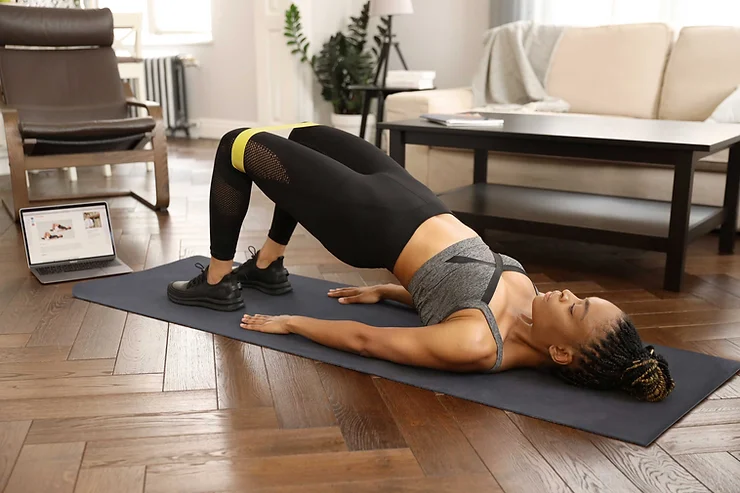How Yoga Overcomes the Chaos of Busy Lives
Unroll Your Mat, Unwind Your Mind : How Yoga Overcomes the Chaos of Busy Lives
In today’s fast-paced world, finding moments of peace and serenity can seem like an impossible task. However, amidst the chaos of busy lives, there exists a powerful tool for achieving inner calm and balance: yoga. In this article, we will explore how the practice of yoga can help you unroll your mat, unwind your mind, and conquer the chaos of modern life.
The Origins of Yoga
Yoga has been practiced for thousands of years, originating in ancient India as a spiritual, mental, and physical discipline. The word “yoga” itself means union, representing the harmonious integration of body, mind, and spirit. Rooted in ancient philosophies and traditions, yoga offers a holistic approach to health and well-being.
Yoga encompasses a diverse range of practices, including physical postures (asanas), breath control (pranayama), meditation (dhyana), and ethical principles (yamas and niyamas). Each aspect of yoga contributes to its transformative power, offering practitioners a pathway to self-discovery and personal growth.
Benefits of Yoga for Busy Lives
In today’s hectic world, the benefits of yoga are more relevant than ever. Here are some ways in which yoga can help you navigate the chaos of modern life:
Stress Reduction and Relaxation
The practice of yoga promotes relaxation and reduces stress by activating the body’s relaxation response. Through gentle stretching, deep breathing, and mindfulness techniques, yoga helps calm the nervous system, lower cortisol levels, and induce a state of deep relaxation.
Read More: Yoga for Beginners: Guide to Starting Your Practice
Improved Physical Health
Regular practice of yoga can improve physical health by increasing flexibility, strength, and balance. Yoga postures work to gently stretch and strengthen the muscles, lubricate the joints, and improve circulation, promoting overall health and vitality.
Mental Clarity and Focus
Yoga encourages mental clarity and focus by quieting the chatter of the mind and promoting present-moment awareness. Through mindfulness practices such as meditation and breath awareness, yoga helps cultivate concentration, enhance cognitive function, and sharpen mental acuity.
Emotional Well-being
Yoga provides a supportive framework for exploring and processing emotions, helping practitioners develop greater emotional resilience and well-being. By cultivating self-awareness, acceptance, and compassion, yoga fosters emotional balance and equanimity in the face of life’s challenges.
Unroll Your Mat, Unwind Your Mind : How Yoga Conquers the Chaos of Busy Lives
Creating a Sacred Space
Before you unroll your mat, take a moment to create a sacred space for your practice. Choose a quiet, peaceful environment free from distractions, and adorn your space with items that inspire and uplift you, such as candles, incense, or sacred symbols. Creating a sacred space can help set the tone for your practice and invite a sense of reverence and mindfulness.

Cultivating Mindfulness
As you unroll your mat and step onto its surface, bring your awareness fully into the present moment. Cultivate mindfulness by tuning into the sensations of your body, the rhythm of your breath, and the quality of your thoughts and emotions. Allow yourself to be fully present with whatever arises, without judgment or attachment, embracing each moment as it unfolds.
Practicing with Intention
As you move through your yoga practice, set an intention to cultivate qualities such as peace, joy, or compassion. Let your intention guide your movements and breath, infusing your practice with purpose and meaning. Whether you’re flowing through a dynamic vinyasa sequence or holding a restorative pose, let your intention be your North Star, guiding you back to the present moment whenever your mind begins to wander.
Embracing the Journey
As you journey through your yoga practice, remember that it is not about achieving perfection or mastering difficult poses. Instead, it is about embracing the process of self-discovery and growth, honoring your body’s unique needs and limitations, and cultivating a spirit of curiosity and exploration. Approach your practice with an open heart and a sense of humility, knowing that each step on the mat is an opportunity for learning, growth, and transformation.
FAQs
- Can anyone practice yoga, regardless of age or fitness level? Absolutely! Yoga is a practice that can be adapted to suit individuals of all ages, fitness levels, and body types. Whether you’re a beginner or an experienced practitioner, there are modifications and variations available to ensure that yoga is accessible and beneficial for everyone.
- How often should I practice yoga to experience its benefits? The frequency of your yoga practice depends on your personal schedule, preferences, and goals. Even practicing yoga for just a few minutes each day can yield noticeable benefits, but ideally, aim for at least 2-3 sessions per week to experience meaningful improvements in physical, mental, and emotional well-being.
- What if I’m not flexible enough to do yoga? Flexibility is not a prerequisite for practicing yoga; rather, it is a byproduct of consistent practice over time. Yoga is about meeting yourself where you are and honoring your body’s unique capabilities. With patience, dedication, and regular practice, you will gradually increase your flexibility and mobility, allowing you to access a wider range of poses with greater ease.
- Is yoga a religious practice? While yoga has its roots in ancient spiritual traditions, it is not inherently religious. Yoga is a holistic practice that encompasses physical, mental, and spiritual dimensions, but it can be adapted and practiced by individuals of all faiths or no faith at all. Yoga is ultimately a personal journey of self-discovery and self-realization, guided by the practitioner’s individual beliefs and values.
- Can yoga help with anxiety and depression? Yes, yoga can be a powerful tool for managing anxiety and depression. The combination of physical movement, breath awareness, and mindfulness practices found in yoga can help calm the mind, reduce stress, and promote emotional well-being. Many people find that regular yoga practice enhances their mood, increases feelings of relaxation and contentment, and improves overall quality of life.
- How can I incorporate yoga into my busy schedule? With a little creativity and flexibility, it’s possible to integrate yoga into even the busiest of schedules. Consider starting your day with a brief morning yoga routine to set a positive tone for the day ahead, or take short yoga breaks throughout the day to stretch and refresh your body and mind. You can also explore evening yoga practices to unwind and relax before bedtime, helping you prepare for a restful night’s sleep.
In conclusion, yoga offers a transformative pathway to inner peace, balance, and well-being amidst the chaos of busy lives. By unrolling your mat, you embark on a journey of self-discovery, self-care, and self-realization, cultivating a deeper connection to yourself and the world around you. So, take a deep breath, unroll your mat, and discover the transformative power of yoga for yourself.
Read More: 10 Health Benefits of Vinyasa Flow Yoga
